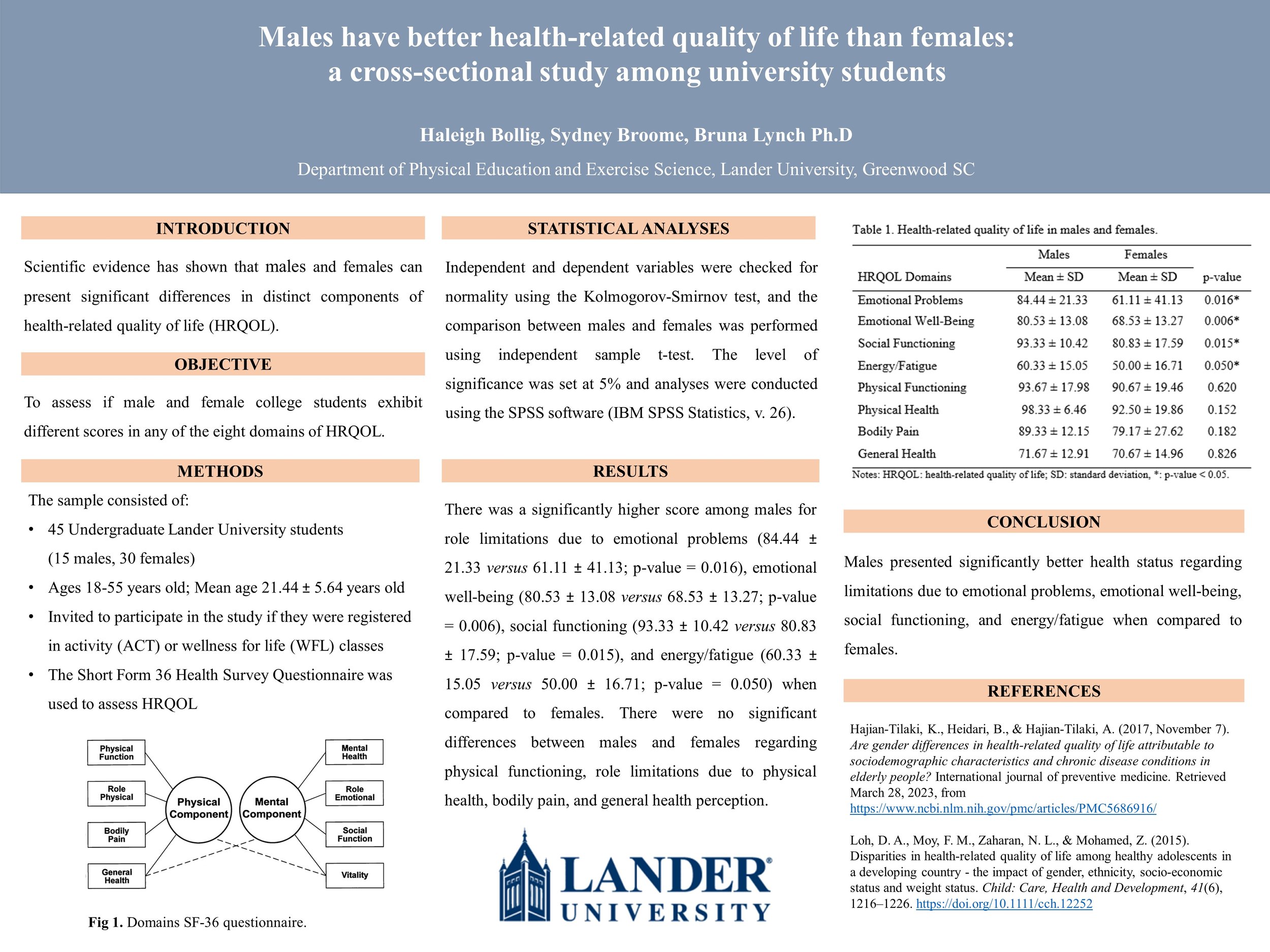Males have better health-related quality of life than females: a cross-sectional study among university students
Haleigh Bollig, Sydney Broome, Bruna Lynch
Scientific evidence has shown that males and females can present significant differences in distinct components of health-related quality of life (HRQOL). Objective: To assess if male and female college students exhibit different scores in any of the eight domains of HRQOL. Methods: Undergraduate students attending Lander University (Greenwood, SC) were invited to participate in the study if they were registered in activity (ACT) classes or wellness for life (WFL) classes. The Short Form 36 Health Survey Questionnaire (SF-36) was used to assess HRQOL (eight scales: physical functioning, role limitations due to physical problems, energy/fatigue, bodily pain, general health perception, social functioning, role limitations due to emotional problems, and emotional well-being). Independent and dependent variables were checked for normality using the Kolmogorov-Smirnov test, and the comparison between males and females was performed using independent sample t-test. The level of significance was set at 5% and analyses were conducted using the SPSS software (IBM SPSS Statistics, version 26). Results: The sample consisted of 45 undergraduate students (15 males, 30 females, mean age 21.44 ± 5.64 years old). There was a significantly higher score among males for role limitations due to emotional problems (84.44 ± 21.33 versus 61.11 ± 41.13; p-value = 0.016), emotional well-being (80.53 ± 13.08 versus 68.53 ± 13.27; p-value = 0.006), social functioning (93.33 ± 10.42 versus 80.83 ± 17.59; p-value = 0.015), and energy/fatigue (60.33 ± 15.05 versus 50.00 ± 16.71; p-value = 0.050) when compared to females. There were no significant differences between males and females regarding physical functioning, role limitations due to physical health, bodily pain, and general health perception. Conclusion: Males presented significantly better health status regarding limitations due to emotional problems, emotional well-being, social functioning, and energy/fatigue when compared to females. "
Haleigh Bollig is an undergraduate Exercise Science student attending Lander University. She is part of Lander Women’s Soccer team and has been part of the President’s List and Dean List since she has been at Lander. Haleigh completed an internship with Mason Dermatology in Abbeville, SC and is currently interning with Self Regional Cardiopulmonary Rehabilitation in Greenwood, SC. She is a senior focusing on preparing for graduate school to become a physician’s assistant to specialize in Sports Medicine.
Sydney Broome graduated from Abbeville High School in Abbeville, SC. She is currently a senior exercise science major at Lander University, focusing on physician assistant studies in hopes of attending graduate school in the future. Sydney has completed one internship at an outpatient physical therapy setting, one internship at an inpatient physician assistant setting, and is currently involved in an internship at an outpatient occupational therapy setting.
